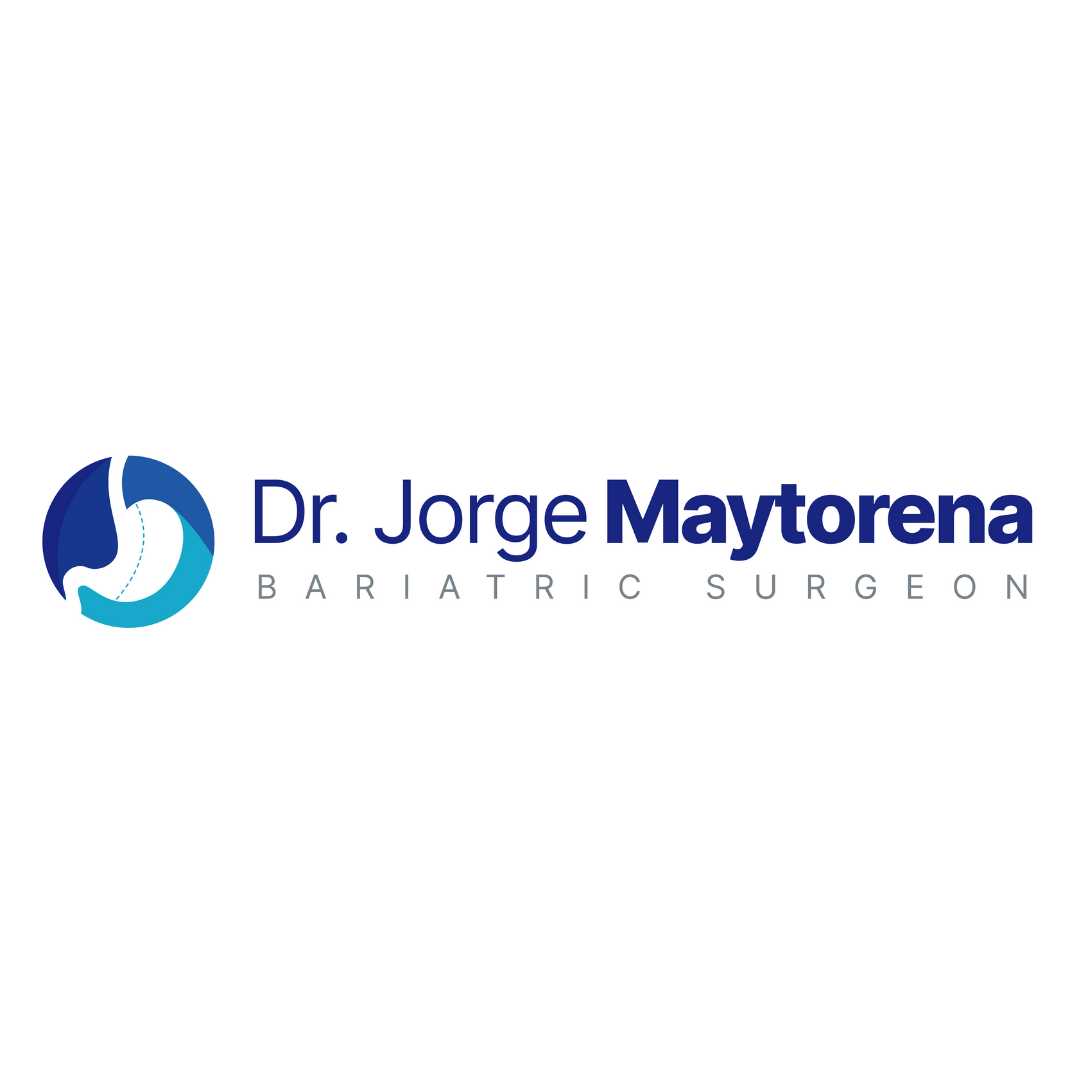Considering Bariatric Surgery in Mexico? A Must-Read Guide for Canadians

The decision to pursue bariatric surgery is a life-changing one, and for many Canadians seeking weight loss surgery, Mexico has become an increasingly popular destination. Driven by the promise of affordable weight loss surgery and potentially shorter wait times for bariatric surgery compared to options within Canada, thousands are exploring this path. However, the idea of travelling abroad for a major medical procedure naturally comes with questions and concerns.
This detailed guide is specifically designed for you, the Canadian patient, to navigate the process of planning a safe bariatric surgery in Mexico and embarking on a successful weight loss journey abroad. We aim to answer the key questions you might be searching for, empowering you to make informed decisions every step of the way.
Why Are So Many Canadians Choosing Mexico for Bariatric Surgery?
Understanding the "pull factors" can help you evaluate if this option is right for you:
- Significant Cost Savings: This is often the primary motivator. The cost of bariatric surgery in Mexico—whether it's a Gastric Sleeve Mexico (VSG) or Gastric Bypass Mexico (RNY)—can be 40-70% less than paying for private surgery in Canada or the United States. While Canada's public healthcare system covers bariatric surgery for eligible individuals, the access can be limited by long wait times. A VSG Mexico cost for Canadians might range from approximately CAD $5,500 to $9,000 in an all-inclusive package, whereas private options in Canada could be upwards of CAD $18,000-$25,000.
- Drastically Reduced Wait Times: Bariatric surgery wait times in Canada through the public system can range from many months to several years, depending on the province and individual circumstances. In Mexico, patients can often schedule their surgery within weeks, allowing them to start their weight loss journey much sooner.
- Access to Experienced Surgeons & Quality Facilities: Mexico is home to many highly experienced bariatric surgeons, many of whom are U.S. board-certified, have international fellowship training, and are members of prestigious organizations like the American Society for Metabolic and Bariatric Surgery (ASMBS) or the International Federation for the Surgery of Obesity and Metabolic Disorders (IFSO). Reputable bariatric clinics in Mexico often feature state-of-the-art technology and cater extensively to international patients, including many Canadians having bariatric surgery.
- Opportunity for Focused Recovery: Some patients appreciate the ability to recover in a dedicated environment, away from daily stressors, allowing them to focus entirely on their initial healing and adjustment.
Understanding Your Surgical Options: Popular Choices for Canadians
While your surgeon will recommend the best procedure for your individual needs, the most common bariatric surgeries Canadians opt for in Mexico include:
- Gastric Sleeve (Vertical Sleeve Gastrectomy - VSG): This restrictive procedure involves removing about 70-80% of the stomach. It limits food intake and reduces hunger-producing hormones. It's often praised for its relative simplicity and lower risk of nutritional deficiencies compared to bypass procedures.
- Gastric Bypass (Roux-en-Y - RNY): This procedure creates a small stomach pouch and reroutes a portion of the small intestine. It works by both restricting food intake and reducing calorie/nutrient absorption. It's highly effective for significant weight loss and often leads to rapid improvement or remission of type 2 diabetes and severe GERD.
- Mini Gastric Bypass (MGB): A slightly less complex version of the RNY with one less connection (anastomosis), offering similar significant weight loss and metabolic benefits.
- Duodenal Switch (DS): A more complex procedure offering the highest potential weight loss, typically reserved for individuals with a very high BMI. It has a greater risk of nutritional deficiencies.
A Step-by-Step Plan for Canadians Planning Bariatric Surgery in Mexico
A successful medical trip to Mexico from Canada requires careful planning and due diligence.
Step 1: Comprehensive Research & Vetting
This is the most crucial stage for ensuring a safe bariatric surgery in Mexico.
Finding Top Bariatric Surgeons in Mexico for Canadians:
- Credentials: Look for board certifications (Mexican Council of General Surgery with a specialty in Bariatric Surgery, or international equivalents), fellowship training in bariatric/laparoscopic surgery.
- Experience: How many years have they been performing bariatric surgery? How many of your specific procedures have they done?
- Canadian Patient Testimonials & Reviews: Seek out reviews bariatric surgery Mexico Canadians on independent platforms (Google, ObesityHelp.com, BariatricPal.com, Facebook groups). Be wary of overly curated testimonials.
- Communication: Does the surgeon (or their team) communicate clearly in English?
- Questions for Surgeons: Ask about their experience specifically with patients from Canada, their complication rates, and their approach to follow-up for international patients.
Selecting Accredited Bariatric Hospitals in Mexico:
- Accreditation: Is the hospital accredited by recognized bodies like Joint Commission International (JCI), Accreditation Canada International (ACI), or the Mexican General Health Council? This indicates adherence to international safety and quality standards.
- Facilities & Technology: Do they have modern operating rooms, intensive care unit (ICU) capabilities, and advanced laparoscopic equipment?
- Safety Protocols: Inquire about their infection control measures and emergency protocols.
- Red Flags to Watch For: Extremely low prices that seem too good to be true, lack of transparency, difficulty verifying credentials, high-pressure sales tactics, or a dirty/disorganized appearance in facility photos/videos.
- Medical Tourism Facilitators vs. Direct Booking:
- Facilitators: Can simplify planning, offer vetted surgeons/hospitals, and bundle services. However, research the facilitator's reputation thoroughly.
- Direct Booking: Gives you more control but requires more individual research and coordination.
Decoding All-Inclusive Bariatric Surgery Packages Mexico:
- What to look for: Surgeon fees, anesthesiologist fees, all hospital fees (OR, room, medications during stay), pre-operative tests in Mexico, ground transportation (airport-hotel-hospital), hotel stay (number of nights), post-operative medications during your stay, initial follow-up with the surgeon in Mexico, and often nutritional consultations.
- Common Exclusions: Flights from Canada, travel insurance, pre-op tests required before leaving Canada, long-term post-op medications, companion costs, specialized post-op vitamins. Always get a detailed written list.
Step 2: Consultation & Pre-Assessment from Canada
- Virtual Consultations: Most reputable Mexican surgeons offer free initial consultations via video call or phone while you're still in Canada. This is your chance to "meet" the surgeon and ask critical questions.
- Sharing Your Canadian Health Records: You'll need to complete comprehensive medical history forms. Be prepared to provide details of any existing conditions, medications, allergies, and past surgeries. While most international patient departments handle English records, confirm if any official translations are needed (rarely).
- Pre-operative Diet & Tests: Based on your BMI for bariatric surgery and health, your surgeon will prescribe a pre-operative diet (typically 1-4 weeks, sometimes longer for higher BMIs) to reduce liver size and abdominal fat, making surgery safer. Some blood tests, an EKG, or other evaluations might be recommended to be done with your family doctor in Canada before you travel, or they may be part of your package in Mexico.
Step 3: Navigating Finances & Logistics
The True Cost Calculation for Canadians:
- Surgery Package Price: (e.g., CAD $5,500 - $12,000+ depending on procedure and clinic).
- Round-trip Flights: From your Canadian city (Toronto, Montreal, Vancouver, Calgary, Edmonton, etc.) to the Mexican city (e.g., Tijuana via San Diego, Cancun, Puerto Vallarta, Guadalajara). Costs vary widely by season and booking time.
- Additional Accommodation: If your package doesn't cover the full duration or for a companion.
- Travel & Medical Complications Insurance: Budget CAD $300-$1000+ for specialized coverage.
- Spending Money & Buffer: For incidentals, post-op supplies not covered, and unforeseen minor expenses.
Payment Methods & Financing for Canadians:
- Clinics typically accept wire transfers, credit cards (may have fees), and sometimes cash (USD).
- Financing weight loss surgery Mexico Canada: Explore options like personal loans from Canadian banks, lines of credit, or third-party medical financing companies that cater to Canadians seeking treatment abroad (e.g., Medicard, Credit Medical – verify they cover out-of-country procedures).
Essential: Travel & Medical Complications Insurance for Canadians:
- Your provincial health plan (OHIP, AHCIP, MSP, etc.) will NOT cover elective bariatric surgery in Mexico and will provide very limited coverage (if any) for complications arising from it once you return.
- You MUST obtain private insurance that specifically covers:
- Emergency medical expenses related to complications from your elective surgery abroad.
- Medical evacuation back to Canada if necessary.
- Trip cancellation/interruption.
- Be completely transparent with the insurer about your medical travel plans. Companies like TuGo, Blue Cross (check specific plans), Manulife, or specialized medical travel insurers may offer suitable plans. Read the policy wordings very carefully.
Canadian Passport & Mexican Entry (FMM):
- Your Canadian passport must be valid for at least six months beyond your planned stay.
- Canadians do not need a visa for tourist stays up to 180 days but will fill out a Multiple Migratory Form (FMM) upon arrival in Mexico (often provided by the airline or at immigration).
Travel Companion: Highly recommended for support. They will need their own valid passport.
Step 4: Pre-Departure Preparations in Canada
Strictly Follow Pre-Op Diet: This is crucial for surgical safety.
Arrange Time Off Work: Typical initial recovery needing time off work can be 2-6 weeks, depending on your job and procedure. Discuss potential for Employment Insurance (EI) sickness benefits with Service Canada; eligibility for elective surgery abroad can be complex and is not guaranteed.
Home & Personal Arrangements: Childcare, pet care, support network for your return.
Packing Checklist for Canadians:
- Passport, FMM, flight tickets, insurance documents, clinic contact info.
- All current prescription medications (in original pharmacy bottles with your name). Get a letter from your Canadian doctor if carrying controlled substances or many medications.
- Loose, comfortable clothing (easy to put on/take off), sleepwear, robe, slippers.
- Basic toiletries, CPAP machine if you use one.
- Phone, chargers, Canadian-to-Mexican power adapter (though many places are compatible or offer USB).
- Entertainment (books, tablet).
- Neck pillow for travel.
- Any specific items your clinic recommends (e.g., Gas-X strips, throat lozenges).
Step 5: Your Surgery and Initial Recovery
- Arrival & Pre-Surgery: You'll typically be met at the airport by a clinic representative. You'll have final consultations with your surgeon and anesthesiologist, and any remaining pre-op tests will be done.
- The Procedure: You'll undergo your scheduled bariatric surgery.
- Hospital Care: Expect a hospital stay of 1-3 nights. The medical team will manage your pain, help you start sipping clear fluids, and encourage you to walk to prevent blood clots.
- Clear Post-Op Instructions: Before discharge, ensure you receive detailed written instructions (in English) covering wound care, medication schedule, dietary stages (liquid, pureed, soft, regular), activity guidelines, and emergency contact information for the clinic.
Step 6: Long-Term Aftercare & Success
Safe Travel Back to Canada:
- Your surgeon will clear you for travel (usually a few days to a week post-op).
- During flights, stay hydrated, walk frequently in the aisle, and perform leg exercises. Request assistance with luggage.
Critical: Arranging Bariatric Aftercare in Canada – This Needs Proactive Planning!
- This is a significant consideration. While your Mexican clinic will provide initial guidance and often remote follow-up (calls, emails), ongoing local support is beneficial.
- Talk to your Canadian Family Doctor (GP) before you go. Inform them of your plans. Some GPs are supportive and will help with basic follow-up (blood work, prescription refills based on Mexican surgeon's advice), while others may be hesitant.
- Finding a Bariatric Specialist in Canada for Follow-Up: It can be challenging to get into a Canadian bariatric program for follow-up if your surgery was done elsewhere. Some private Canadian bariatric clinics may offer fee-for-service follow-up care; inquire directly.
- Emergency Care in Canada: If you experience a serious complication upon return, go to your nearest Canadian emergency room. Provide them with all your medical records from Mexico. Your travel medical insurance should be your first point of contact for financial coverage of emergent complications.
Managing Your Medical Records from Mexico: Request a complete copy of your surgical report, hospital discharge summary, and any test results before leaving Mexico. Keep these for your Canadian doctors.
Lifelong Commitment is Key to Success:
- Diet: Strictly follow the phased dietary progression. Long-term, focus on protein-rich, nutrient-dense foods in small portions.
- Vitamins & Minerals: This is non-negotiable, especially after Gastric Bypass. Take your prescribed bariatric-specific multivitamins, calcium, vitamin D, iron, B12, etc., for life. Regular blood work in Canada will be needed to monitor for deficiencies.
- Exercise: Gradually increase physical activity as per your surgeon's guidance.
- Support: Join bariatric support groups in Canada (many online) or local groups if available.
FAQs
Is bariatric surgery in Mexico safe for Canadians?
Yes, it can be very safe, but safety is directly proportional to your research and choices. Choosing highly qualified, board-certified surgeons and internationally accredited hospitals, along with having robust travel medical insurance, significantly mitigates risks.
What if I have complications when I return to Canada?
This is where your travel medical insurance is crucial. For minor issues, your Canadian GP may assist. For emergencies, go to a Canadian hospital ER. Your Mexican surgical team should also be contacted for advice. Ensure your insurance covers complications of elective surgery abroad.
Will my Canadian provincial health plan (e.g., OHIP, MSP, AHCIP) cover any costs?
For the elective surgery itself: No. Provincial plans do not cover elective procedures performed outside Canada if the service is available in Canada (even with a waitlist). For emergency medical care needed while in Mexico or complications treated upon return to Canada, your provincial plan may cover a very small fraction of costs (equivalent to what it would pay in Canada), leaving you with a massive bill if you don't have private travel medical insurance. Do not rely on your provincial plan for any significant coverage.
Can I claim bariatric surgery in Mexico on my Canadian taxes?
Possibly. Bariatric surgery can be an eligible medical expense for the Canadian Medical Expense Tax Credit (METC) if it meets certain criteria (e.g., prescribed by a medical practitioner). Travel expenses to obtain medical services not available locally may also be claimable. Keep all receipts. It's best to consult the Canada Revenue Agency (CRA) guidelines or a Canadian tax professional for personalized advice.
What are the real reviews from Canadians who went to Mexico for bariatric surgery?
Look for reviews on independent platforms like ObesityHelp.com, BariatricPal.com, Google Reviews for specific clinics/surgeons, and dedicated Facebook groups for bariatric surgery in Mexico (some are Canadian-specific). Be discerning; look for balanced, detailed accounts.
Your Path to Success: Key Takeaways for Canadians
Planning your bariatric surgery trip from Canada to Mexico is a major undertaking that can yield incredible rewards for your health and quality of life. Success hinges on:
- Meticulous, Unbiased Research: This is your most powerful tool. Don't rush this step.
- Prioritizing Quality & Safety Over Price: While affordability is a key driver, ensure your chosen surgeon and clinic have impeccable credentials and safety records. The best bariatric surgeons in Mexico for Canadians focus on patient outcomes, not just low prices.
- Comprehensive Travel & Medical Complications Insurance: This is an absolute non-negotiable for your peace of mind and financial protection.
- Proactive Aftercare Planning: Understand and plan for your follow-up care needs before you leave Canada.
- Being Your Own Best Advocate: Ask questions, clarify doubts, and ensure you are comfortable and informed at every stage.
This journey requires courage, commitment, and careful preparation. By being a well-informed patient, you can navigate the process safely and successfully, paving the way for a healthier, more vibrant future.
Planning Medical Treatment Abroad? Placidway connects you with trusted global doctors and clinics. Get free, personalized quotes for your procedure today!


.png)


.png)











Share this listing